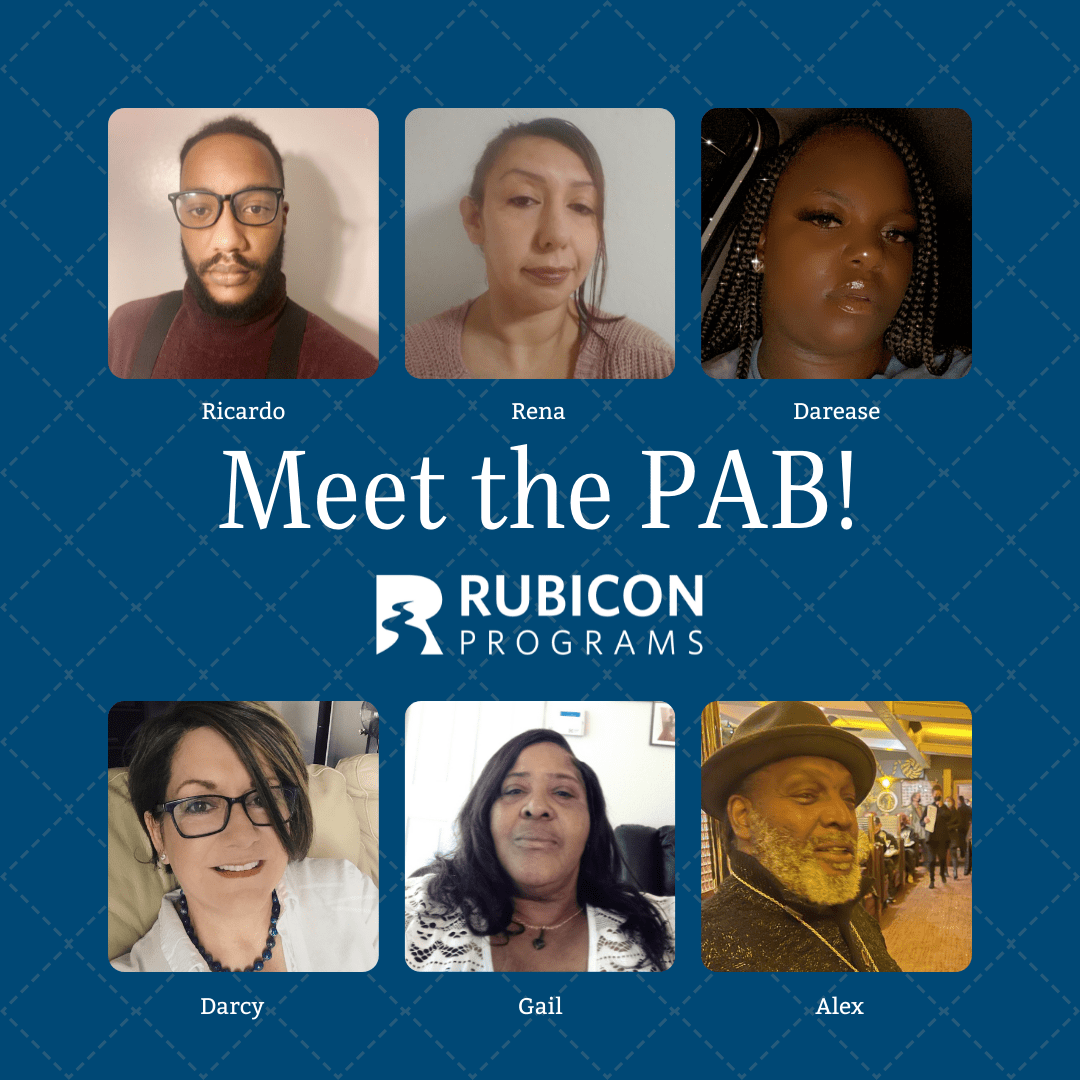Rubicon Participants Create a Path to Housing for Richmond Families

When members of the Richmond City Council return from their summer recess on September 13, they are expected to vote on a $400,000 budget item to provide housing for families experiencing homelessness. If it passes, the funding will allow a project started by members of Rubicon’s Participant Advisory Board (PAB), in partnership with Tom Herriman, Housing First Coordinator for the Rotary Club of Richmond, to continue connecting unhoused residents with long-term rental units. Families that are chosen for the project receive furnished housing with one year of rent paid upfront; in addition, Rubicon and other community-based programs provide the housing recipients with social support, financial coaching, pro bono legal counsel, and employment assistance as needed.
Gail Thomas, Chairperson for the PAB, began working on the project because of her personal connection to unhoused individuals. “I still see friends out there that I know, that I’ve known for 50 years,” Thomas says. “I’ve watched three of them die living in the streets. And I just couldn’t take it anymore.”

Thomas has taken the lead on connecting with landlords who are willing to work with individuals experiencing homelessness. So far, she has identified seven landlords across Contra Costa and Alameda Counties to join the project. In addition to making the initial connections between landlords and unhoused families, Thomas maintains contact with all parties to ensure any issues that arise between them are resolved quickly and amicably. The remaining PAB members—Rena Barajas Moore, Darease Chrice, Ricardo Portley, Darcy Rose, Alex Thomas, and Taunita Trotter—all play key roles in the project by connecting with landlords and community members who are interested in supporting the cause.
According to Herriman, finding landlords who are open to housing those experiencing homelessness is one of the biggest challenges projects like this face. “It’s really, really difficult to persuade a landlord to accept a formerly homeless person,” Herriman says. “They have all the fears that are trumpeted in the press and on television, so it takes a lot of work to find the landlords. Gail has been amazing in her contacts to find landlords that are willing to accept homeless people, and that’s one reason this program has been successful.”
The project began at the end of 2021, when the PAB met to discuss the barriers to economic mobility that they frequently see among Rubicon participants. Alisha Semplar, Rubicon’s Community Connections Program Manager, works closely with the PAB and says housing is one of the key areas where people experiencing homelessness and incarceration continue to face significant barriers, regardless of their ability to pay.
“There have been several instances where I've worked with participants who are placed in great, career-focused employment, great jobs, great wages, but there's always that red tape that precludes them from being able to get into the housing that they need for themselves and their children,” Semplar says. “The fact that there isn't equity in terms of a process that helps those that need housing the most that can afford to house themselves and are trying to stabilize themselves, that's a continuous issue that I see in our community.”
Since January, eight families have been placed in housing, thanks in part to $120,000 in discretionary funding that Richmond Mayor Tom Butt allocated to the project. The goal is to place another 50-60 families in housing if the additional funding is approved.
“We have been working through all these supportive services to make sure that what Tom [Herriman] and all the other people who stood up and did for this project, what they’re willing to continue to do, won’t be in vain,” Gail Thomas says. “Our children won’t be back on the streets in a year.”
